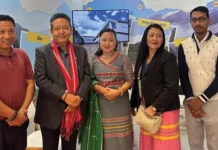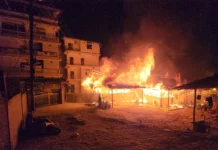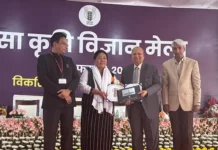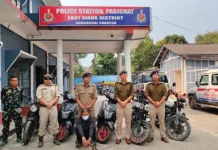PASIGHAT, Nov 25: The North Eastern Institute of Folk Medicine (NEIFM), Pasighat in East Siang district organized a national webinar on ‘Traditional community healthcare providers-an asset to the nation’ on Wednesday.
Centre for Traditional Medicine and Research Secretary, Dr T Thirunarayanan spoke on preserving oral traditions. He explained that local health traditions refer to the undocumented knowledge possessed by individuals and communities, including birth attendants (dais), bonesetters, herbal healers, poison specialists as well as the knowledge on locally available medicinal plants.
“The recent National Health Policy reinforces the need for documentation, validation and promotion of such community based local health tradition,” he said and explained the importance and need to preserve the knowledge and why there is a need to save this tradition.
North East Christian University (NECU) Vice-Chancellor Prof Darlando Khathing highlighted what traditional medicine means, what percentage of people in the world benefit from it, the prevalence of traditional medicine in India, the Indian system of medicine, the rich tradition and the strong biodiversity of North East India.
During the programme, Zoologist Dr Kenjum Bagra spoke on the importance of preserving the knowledge of traditional healing and the role of the NEIFM in the process.
Elaborating on the topic, Prof Debjani Roy explained the National Health Policy 2017 in brief, the ecosystem of TCHP in India, background of the scheme, pilot project, international model for personnel as per ISO 17024, voluntary certification scheme of TCHP, benefits of certification and the way forward for traditional healers.
Coordinator Dr Imlikumba spoke on important sub-divisions of traditional medicine and explained how traditional healers are working in villages and contributing to the healthcare facilities. Dr Imlikumba also stressed on the need to get traditional healers certified.
Botanist Dr Amal Bari also spoke on the importance of intellectual property rights.
More than a hundred participants from all over the country, mostly traditional healers, participated in the webinar.




